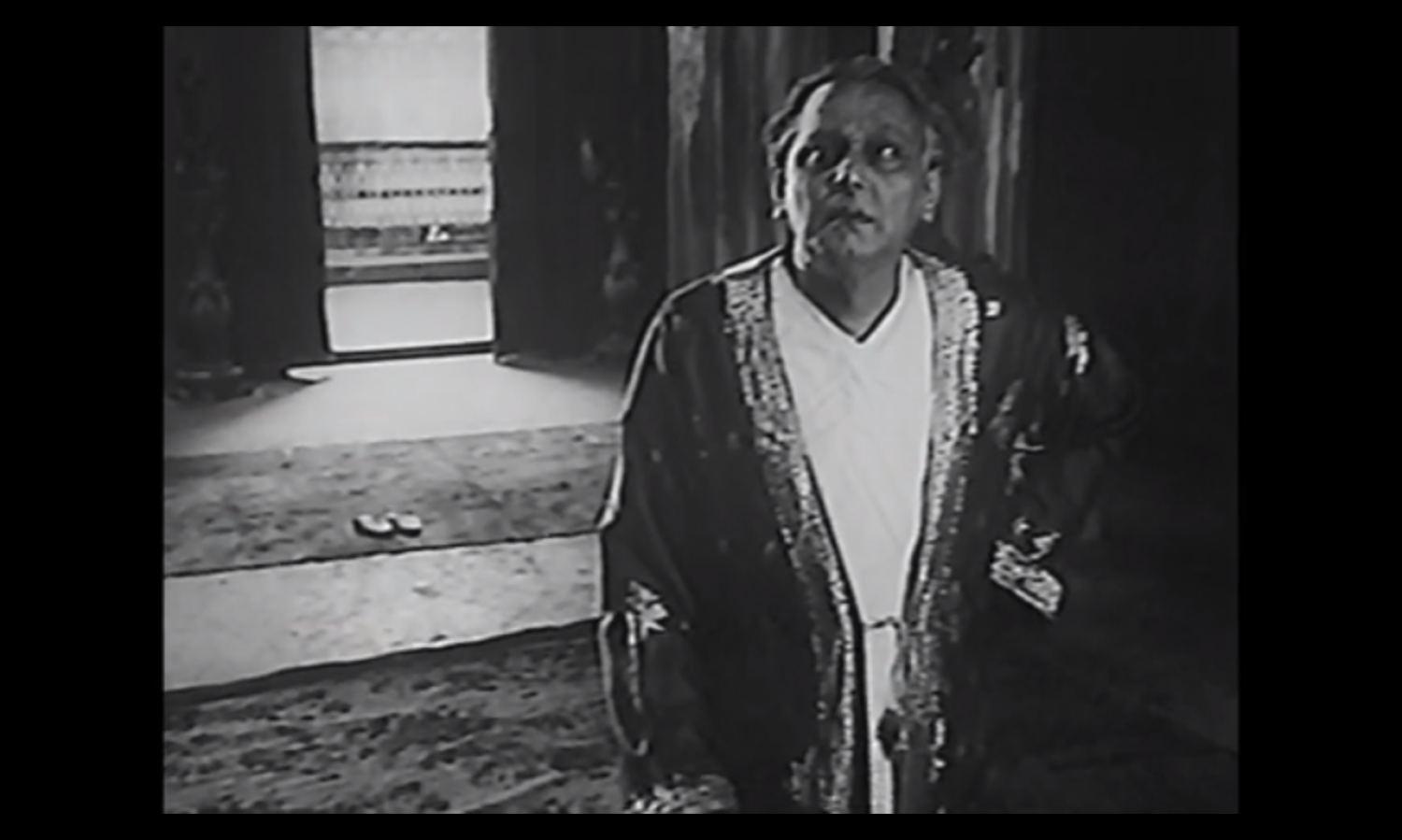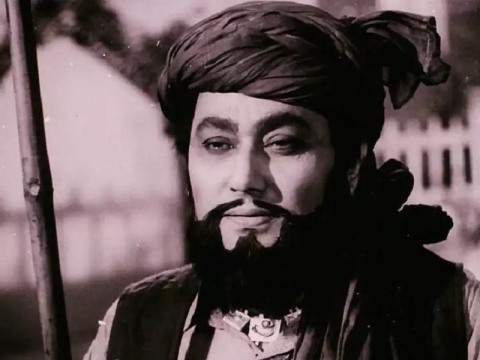Chhabi Biswas was born on 12 July 1900 in Calcutta. Three of Bengali cinema's GenNext discuss the relevance of the great actor's work today.
Chhabi Biswas, the star character actor of Bengali cinema
Kolkata - 12 Jul 2019 9:00 IST


Roushni Sarkar
He fit perfectly as the well-built Afghan trader with the childlike heart, Rahmat Ali, in Tapan Sinha's Kabuliwala (1957). And it was his monumental, haunting performance that was at the heart of the Satyajit Ray classic Jalsaghar (1958). Few could embody the dominant and aristocratic father figures of Bengal society like the legendary Chhabi Biswas.
According to Ray, Biswas was the kind of actor who could never be substituted. That is why after his death on 11 June 1962, Ray never again wrote characters like Biswambhar Roy, Kalikinkar Roy (Devi, 1960) or Indranath Choudhuri (Kanchanjungha, 1962). As the master filmmaker's son Sandip Ray put it, “There has been no second Chhabi Biswas.”
While Biswas gained international recognition through the masterpieces of Ray, Tapan Sinha and other important filmmakers of the 1950s and 1960s, he is not celebrated today as much as popular stars like the late Uttam Kumar and the veteran Soumitra Chatterjee. National award-winning actor Riddhi Sen, independent filmmaker Soukarya Ghosal and cinematographer-director Aneek Chaudhuri spoke to Cinestaan.com about how the present generation perceives Chhabi Biswas and why it is important to bring his work into the limelight.
According to Ghosal, “I have always admired Chhabi Biswas. Whenever I think of the character of a dominating father or an uncle in films, his image comes to mind. While working with him in Jalsaghar, Ray had commented that Chhabi Biswas is the star character actor on the Bengali screen. That a character actor can also be a star alongside heroes such as Uttam Kumar and Soumitra Chatterjee was first established by Chhabi Biswas.”

Ghosal mostly remembers Biswas as the Kabuliwala and Mathur in Bhagwan Shri Shri Ramkrishna (1955). “He had an asthmatic way of speaking or throwing dialogue. The way Biswas turned a demerit to his strength through his performances was quite ahead of his time,” said the young director.
Ghosal loves to look at Biswas as a quintessentially Bengali personality. “He had a bit of a feudal apparoch too and that’s why Ray cast him in Jalsaghar. Like Hemanta [Kumar] Mukherjee’s voice, Biswas’s personality makes one nostalgic about one’s grandfather.

"The essential Bengali traits of being witty, snooty, humanitarian and influential while also being possessed of a generous heart that loves to burst into laughter, traits that seem to be disappearing today, could all be found in him," he continued. "The place that he created for himself with his image that was a combination of so many elements is almost absent in present-day actors. With the end of his career, an era came to an end. As people live through their creations over the years, his performance and persona combined is like an old banyan tree that will survive through years.”
Asked what artistes from the current generation could learn from Biswas, Ghosal replied, “ I think they should study the magnum actor and personality he was. Because an actor puts in his physicality, expressions, limitations and voice to create a performance and Biswas had a magnum appearance which he knew how to use to make the most impact. For example, the way Amitabh Bachchan now flawlessly acts the roles of elderly people with influence and seriousness, Biswas, in his era, used to portray those characters with finesse.
"Also, I think it is important for us to study him as a Bengali. These days, not only actors, but also individuals are extremely confused about our identities. But Biswas at once left the impression of a smart and influential Bengali who demanded immediate respect and reverence. I think we should learn from him how to create our cultural identity.”
Riddhi Sen, who was born and brought up in an actor family, said, “I think very few actors from my generation are aware of names such as Chhabi Biswas, Kali Bannerjee and Tulsi Chakravarty. These are people who shaped Indian cinema. The Golden Age of Bengali cinema doesn’t mean only Uttam Kumar or Soumitra Chatterjee. If these people were not there, I don’t think Bengali films would have reached such heights.”
Sen pointed out that we today talk a lot about actors like Joe Pesci and Al Pacino but hardly about Biswas, though he was no less as an actor. "I would like to draw a different example in this regard," the young actor said. "I often find phone-call scenes to be intriguing as while acting one isn't really talking to anyone on the other side. Sometimes the other person is not even shown.

"There is a famous long phone-call scene of Kali Bannerjee in Ray’s Parash Pathar (1958). In that scene, Bannerjee’s excellent expression and act establishes the character of the person on the other side! I was so impressed that I could learn how to enact phone-call scenes from that one. What I mean to say is actors like Biswas teach us these nuances. I love Kanchanjungha and Jalsaghar. These films cannot be imagined without him."
Sen believes actors such as Biswas brought the concept of 'modern acting' to Bengali cinema. “The way Mrinal Sen broke away from traditional filmmaking in Bengal and created a new one, Biswas did the same with his acting. The sad part is these actors are not discussed nationally and they are not popular the way they should be,” reflected Sen.
Part of the reason, Sen believes, is that we don't regard acting as a field of study. “There is a real lack of awareness about these actors," he said. "I, Rwitobroto Mukherjee and Kaushik Ganguly’s son Ujaan are aware of him because of our family backgrounds and cultural growth. My parents took the initiative to introduce me to these films and actors because they wanted me to become an actor. I watched Jalsaghar and The Godfather when I was a kid.
"When my parents were young they did not have options such as Netflix and Amazon Prime. They had no option but to watch films such as Kanchanjungha and Jalsaghar. But these days, owing to the multiple options, the present generation of actors doesn’t feel the need to educate itself by observing these actors."

Chaudhuri, on the other hand, observed, “I relate him much to Marcello Mastroianni of Italy because of the charm, spark that Biswas created on screen. I remember his performance in Jalsaghar as he foresees the demise of his zamindari while a certain pride is still ignited in him. I don’t think anyone else could have done it better. At the same time, he was extremely natural as Rahmat in Kabuliwala.”
According to Chaudhuri, Chhabi Biswas was "an institution of acting, expression and personality all together”. If he were born today he would have got far more accolades as character actors are recognized more today unlike in his times when leading artistes with good looks gained more popularity. “I still feel he did not receive due credit,” Chaudhuri said.





